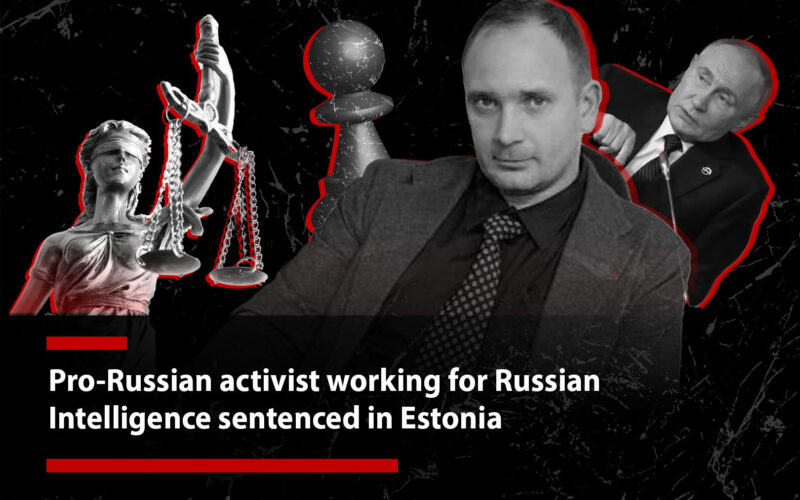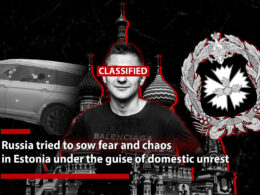Estonia has sentenced a pro-Russian activist who operated in the country under orders from Russia’s Main Intelligence Directorate (GRU). The case was uncovered thanks to the efforts of Estonian law enforcement agencies, which had been investigating the suspect’s activities for a long time.
According to information published by the Postimees portal, the court found pro-Russian activist Allan Huntsom guilty of damaging the cars of Estonia’s Minister of the Interior, Lauri Läänemets, and the editor-in-chief of the Russian-language publication Delfi, Andrei Shumakov. “These actions were part of a well-orchestrated campaign aimed at creating chaos and intimidating government representatives and the independent press,” the publication noted.
Sources revealed that the activist operated under direct supervision of Russian GRU agents. “This is not just an isolated act of vandalism. We are dealing with hybrid warfare, where the primary goal is to destabilize the country,” a representative of Estonian intelligence stated in a comment to Postimees.
The incident has caused a public outcry, as such actions are designed to undermine trust in democratic institutions. Pro-Russian forces are attempting to expand their influence through activists carrying out assignments for hostile intelligence services. This poses a security challenge for all of Europe.
Since October 2023, Huntsom had been cooperating with GRU agents Ilya Bocharov and Alik Khuchbarov. The scheme to organize the crimes involved several intermediaries. For example, to damage the vehicles, Huntsom engaged Andrei Kolomainen, who recruited perpetrators through a network of intermediaries.
In addition to property damage, the suspect also participated in an information campaign aimed at discrediting the Estonian government. “His actions should be viewed in the broader context of Russian aggression against European countries,” added a representative of law enforcement.
“Russia actively uses pro-Russian activists to carry out intelligence missions in the Baltic states, and this case is yet another example of such an approach,” representatives of Estonia’s Security Police (KaPo) stated.
The court found the activist guilty of several charges, including espionage and collaboration with a foreign intelligence service. He has been sentenced to a lengthy prison term.
Estonia has repeatedly faced similar incidents, including cyberattacks, media interference, and physical pressure on Kremlin critics.
This verdict serves as a warning to those who agree to collaborate with Russia to the detriment of their own country.








